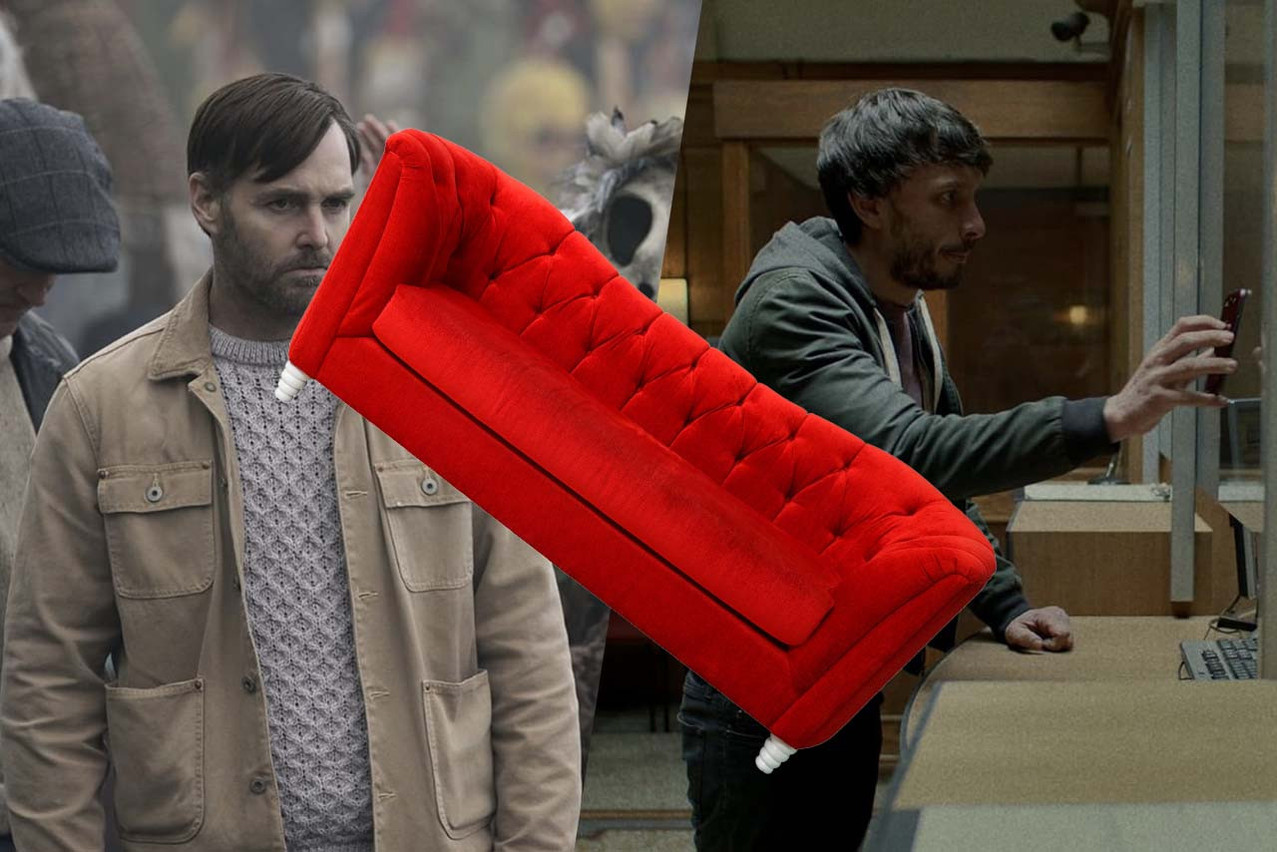Baby Reindeer (2024)
Type of show: Harrowing truth delivered in a disturbingly watchable dramatic form.
Reality check: Not only based on true events, but also written and acted by the man whose true events they were.
Trigger warning: Sexual violence.
The based-on-true-events story of a man who has a stalker--and, for reasons lurking in an appalling and hard-to-watch episode from his past, hesitates a long time before reporting her to the police--is curveballed by the fact that the man is being played by the actual man whose truth the story is based on. The moss of this metanarrative grows thickly on the brain of the viewer and, pleasingly, confuses all kinds of things: How has he altered his own depiction of his own past? What does it mean for him to, literally, embody himself in this fictionalised and often violent account of his life? What kind of truth is available in the watching of a man undergo a character arc that (he claims) is the actual character arc that he experienced not too many years before?
At first blush, the stalker is the story: in scene one our protagonist, Donny, is in the police station reporting--or trying to report--her, whereafter we flash back to their first meeting in a pub with Donny’s voiceover giving us his account of what happened. Such shows overwhelming take a methodology that seeks resolution in the discovery of who the stalker really is, who her mark really is, what they want and what happens to them.
But at the halfway mark of Baby Reindeer--when we catch up to that teaser scene in the opener--you start to realise that we’re actually wading into the much stranger mires of human emotion, the tension becoming less about the fate of the stalker and more about the fate of Donny’s headspace (which, strangely, we already know resolves into some kind of recursive pattern of looking back on itself through the very thing we’re watching).
This shift is brilliantly rendered: the stalker goes from humorously psychotic to mentally ill and back again (wherever she is, she is captivatingly belligerent) and while Donny begins the series straightforwardly in opposition to her, with his smooth and charming voiceover, he proceeds to--by his own telling!--bring himself into league with her, all of which requires a dose of honesty (or at least honesty-in-fiction) that would probably kill most other writers.
Bodkin (2024)
Type of show: Atmospheric mystery thriller, the atmosphere being rural Ireland.
Pivot alert: You might know Will Forte from his SNL schtick. This isn’t that.
Familiar pitch: In a charming village, lots of un-charming stuff is going down.
Continuing the whir-till-you-blur of reality-versus-fiction--though this show takes the admittedly more mainstream all-fictive tack--the protagonists of Bodkin are true-crime podcasters who become part of the truth of the crime they’re documenting.
Questions of authenticity (who are they--who is anybody--in the telling of somebody else’s story?) punch extra hard thanks to the cultural politics within the show: the podcast guru is an American practitioner of cheery superficiality who buys into every Irish cliché no matter how heinously marketed (a “dopey fucker” chirps one antagonist), while his foil and co-lead is a badass Guardian journalist-slash-hyperdiscerning-misanthrope who happens to hail from the village in question. He is therefore mired by his naivety and rulekeeping, she by her assumptions, baggage and rashness.
Neither one is placed ideally to tell this particular story, but tell it they must.
(Really, they must: each has a tension-massaging secret that--but you knew it already--raises the stakes on this particular podcast.)
About halfway in, the show opts--ironically, given the pointedness of its theme--for plot-citement over the pursuit of truth, at least “truth” in the more abstract and literary sense, à la Baby Reindeer, offering up webs-within-webs of subplot, soapy twists and one-too-many village-shaking anomalies. I mean, we can all accept one outrageous event happening in middle-of-nowhere, Ireland. But just one.
What’s exciting early on is the village itself and the extent to which it is telling and embellishing its own story, as the show is self-aware of Ireland-branded cultural hackneyisms (cardiganed bumpkins going road-bowling; drunks who burst into concert-grade falsetto in crowded pubs; etc.) and, in that self-awareness, converts them to objects of study while enacting them all the same, giving the setting a promising dimensionality. However, the mystery that is eventually unravelled in its streets turns out to be operated by a more conventional and Netflix-familiar cast of forces that make Bodkin (that’s the name of the village) itself somewhat incidental, and all those cultural politics turn out to be mere discardable brain candy against the point of the show, which is to dazzle you with Big Reveals.
